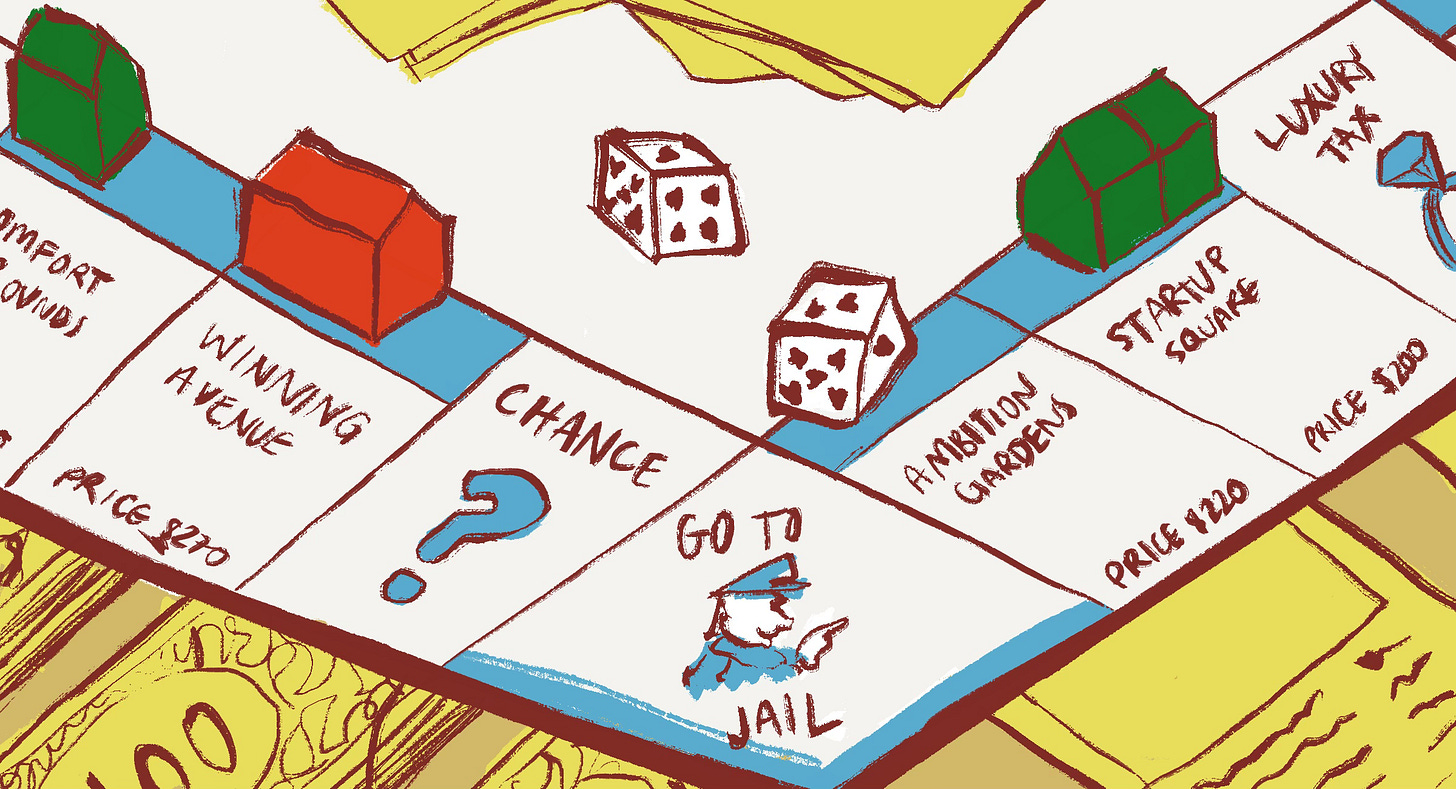How I made an eight year old cry in Monopoly
And what we can learn about startups, meritocracies, and power.
Monopoly mirrors capitalism in brutal ways. Roll the dice favourably early on, and your advantage compounds. If you’re behind, it’s very hard to catch up without breaking the rules, bending the system, or someone giving you a chance. We outwardly describe ad nauseum our desire to have economies reflect to us the fruit of meritocratic systems. To put another way, we outwardly desire systems that reward people purely for what they have to offer: their intelligence, skills, drive, personability, and so on.
Here is where we begin: enter me and the eight year old. We both make our first moves on the board. She is the one who starts out on a bad note and, by contrast, I unwittingly accumulate properties and cash that make me a very powerful Monopoly mogul. Sure enough, she arrives at the brink of bankruptcy. And then she lands on my real estate. Rules are rules, I say. Time to cough up rent, or else give me all your cash and belongings.
Needless to say, this is the part where she cries.
In business, a startup founder enters a game with invisible rules, where chance, privilege, and timing play far more of a role than anyone admits. When things go wrong early – failed launches, investor rejections, being out-networked – it’s easy to spiral and internalise those results as personal failures. Most founders are typically already intelligent, and they aren’t lacking potential. But of those who fail to reach outward success, have they been properly onboarded – emotionally, spiritually – for a system like this? For those who cannot recognise the game they are in, winning or not, they might be misreading the signals or at least haven’t properly reframed the game they are in.
After I snap out of the heat of absolutely nailing Monopoly, I move aside with the eight year old and we talk about what just happened. The dice had moved her early on in places on the board that weren’t outwardly disadvantageous, but equally not favourable. It wasn’t her intelligence that controlled the dice. It wasn’t her wit, her street smarts, her people skills, her drive, ambition, or even her kindness. Then what was it, she asks? Well, it was nothing. Nothing controls the dice.
Most founders do not look for handouts. They seek others who will believe in their vision, back it, and translate the game in a way that provides the space they need to innovate and thrive. Meritocracy is certainly not the full picture. The invisible rules we play in the game of capitalism are the determinants of how success is governed and distributed. If you’re ahead early, your advantage compounds. If you’re behind, it’s very hard to catch up without someone breaking the rules, bending the system, or giving you a chance. So, this raises the question: how are our current systems designed to elevate chance?
At this point in Monopoly, I’m mindful of not scarring this child for life. I suggest we switch places. She is now the winning real estate mogul who owns all the cash and belongings. I’m now nearing bankruptcy. She of course wins the game, I go bankrupt, and she proceeds to tell everyone how much she loves Monopoly.
When we are winning, it can really feel like we are winning. But how much might we truly win if our systems fail to capture the full breadth of talents, experiences, and characters that already exist? The game itself might reflect a multiplicity of pathways to thrive and, in that, reveal a more expansive version of capitalism.



